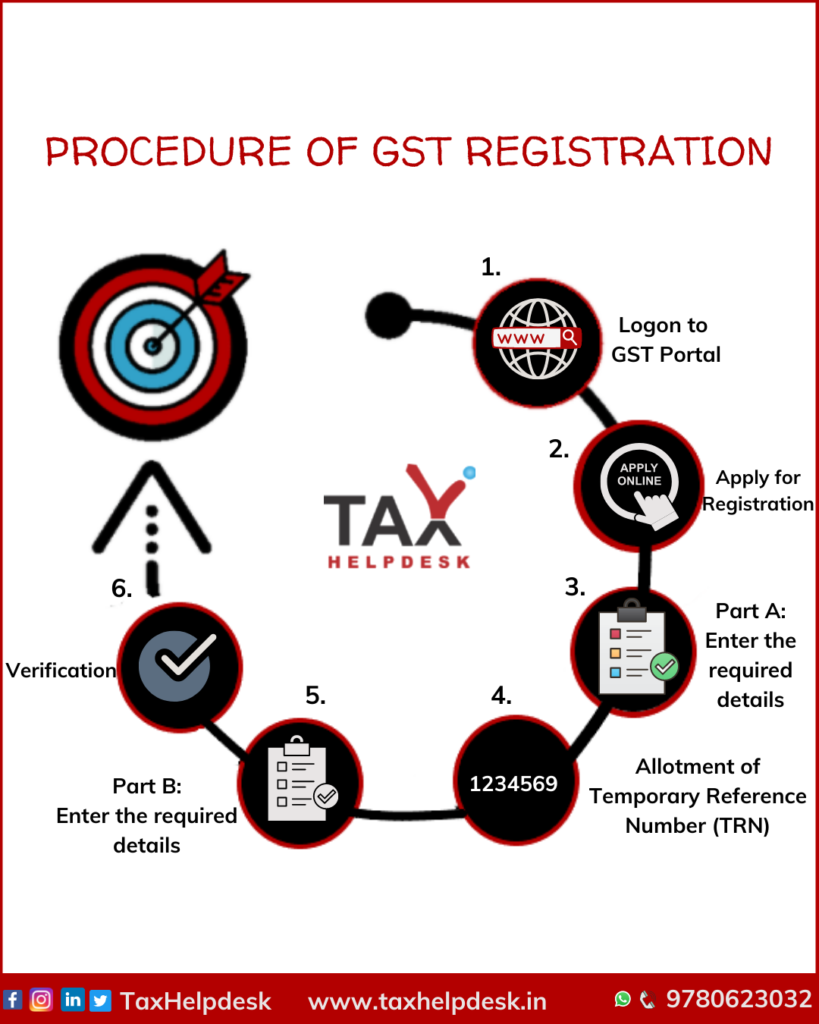Why Singapore GST Registration is Important for Your Start-up
Why Singapore GST Registration is Important for Your Start-up
Blog Article
Browsing the Intricacies of GST Registration: Expert Tips and Finest Practices for Smoother Compliance
From deciphering enrollment requirements to harnessing technological tools for streamlined procedures, the trip in the direction of smoother GST compliance is nuanced and diverse. Stay tuned to uncover important methods and understandings that can aid businesses guide via the complexities of GST enrollment with finesse and self-confidence.
Understanding GST Registration Requirements

In addition to turnover thresholds, companies participating in interstate sales or offering taxed solutions may also be required to register for GST, also if their turn over is listed below the suggested limitation (Singapore GST Registration). Understanding these needs and limits is important to prevent fines and make sure smooth operations within the lawful structure
Moreover, organizations should gather and prepare the needed documentation, such as proof of identity, address, company consolidation, and savings account details, before launching the GST registration process. Failing to give precise info or meet the registration due dates can result in fines or various other lawful repercussions. Companies ought to stay informed about the details GST enrollment requirements appropriate to their procedures to keep conformity and stay clear of potential problems.
Organizing Essential Documents
Companies starting the GST registration process have to meticulously put together and arrange the crucial documentation required for entry. The crucial papers usually needed for GST registration consist of proof of organization enrollment or identity, address and consolidation proofs of business owners or companions, bank account details, proof of principal business, and permission kinds. Making certain that these records are easily offered and organized can streamline the enrollment process and avoid denials or delays.
To successfully arrange important paperwork, companies ought to create a centralized system for keeping and classifying the needed documentation (Singapore GST Registration). Using electronic storage options can assist maintain simple accessibility and make certain that records are safely saved. Additionally, developing a checklist of all needed documents can serve as a handy device to track what has actually been collected and what is still required for entry

Leveraging Innovation for Effectiveness
Enhancing operational performance through technological assimilation is paramount for modern-day services browsing the complexities of GST registration. One of the crucial methods modern technology can aid in GST registration is via the usage of automated software program options.
In addition, modern technology can help with seamless communication with tax obligation authorities. On the internet websites and communication devices allow companies to submit papers, solve queries, and receive updates in an extra efficient fashion. This not just accelerates the enrollment procedure but also helps in preserving reliable and transparent interaction with the pertinent authorities.
Moreover, cloud-based storage services give a safe platform for businesses to shop and accessibility their economic data, guaranteeing compliance with GST record-keeping demands. By systematizing data storage space and automating procedures, organizations can boost their total efficiency and precision in GST enrollment treatments.
Proactive Conformity Surveillance

To make certain effective aggressive compliance monitoring, companies ought to develop durable internal controls, conduct routine audits, and take advantage of automation tools for real-time monitoring of GST deals. Regular training sessions for staff members on GST compliance needs can likewise aid in producing a culture of compliance within the organization. Additionally, involving with tax professionals or professionals can give valuable insights and advice on browsing complicated GST laws.
Engaging With Expert Specialists
Involving experienced tax professionals can dramatically boost a business's understanding and conformity with elaborate GST guidelines. Expert consultants best site bring a wealth of understanding and experience to the table, aiding companies navigate the complexities of GST registration effortlessly. By leveraging their proficiency, business can make sure precise filings, reduce the danger of errors, and remain up-to-date with the most up to date governing changes.
When engaging with professional professionals, it is necessary to choose experts with a strong performance history in GST conformity (Singapore GST Registration). Seek consultants who have a deep understanding of the pertinent laws and policies, in addition to experience collaborating with services in your market. Reliable interaction is type in this partnership, so ensure to plainly define your assumptions and develop normal touchpoints to review progression and address any kind of problems
In addition, expert professionals can provide valuable understandings and recommendations on enhancing your tax obligation strategy, identifying possible cost-saving opportunities, and streamlining your compliance processes. In general, spending in expert consultancy services can go a lengthy means in making certain smoother GST conformity and preventing expensive blunders.
Conclusion
Finally, browsing the intricacies of GST registration calls for a detailed understanding of the needs, company of necessary paperwork, leveraging innovation for efficiency, proactive compliance surveillance, and interaction with expert professionals. By adhering to visit homepage these ideal practices, businesses can make sure smoother compliance with GST regulations and stay clear of prospective fines or fines. It is important to remain educated, positive, and persistent in taking care of GST registration to maintain conformity and support financial honesty.
To make sure compliance with tax obligation regulations, organizations need to thoroughly comprehend the intricate requirements for GST enrollment. Goods and Services Tax Obligation (GST) is a value-added tax obligation levied on the majority of goods and services in a nation, making it vital for businesses to register for GST to stay clear of legal consequences.In addition, businesses should collect and i loved this prepare the necessary documents, such as proof of identification, address, business incorporation, and bank account information, before launching the GST enrollment procedure. Organizations need to stay notified about the particular GST registration demands relevant to their procedures to keep compliance and avoid prospective issues.
The crucial records commonly required for GST enrollment include evidence of business registration or identity, consolidation and address proofs of the organization proprietors or partners, financial institution account details, evidence of major area of business, and consent types.
Report this page